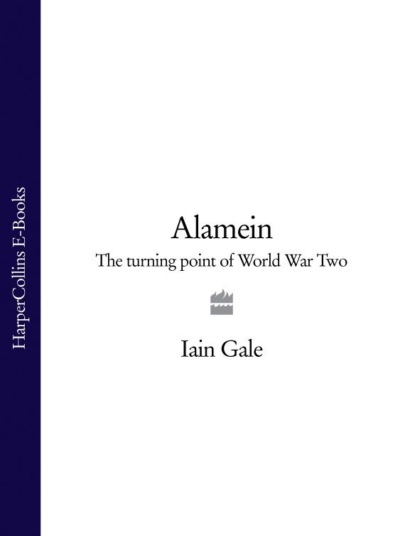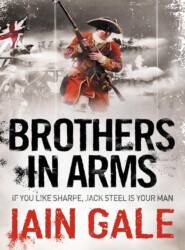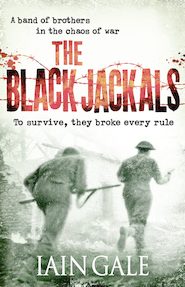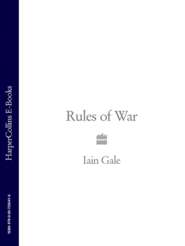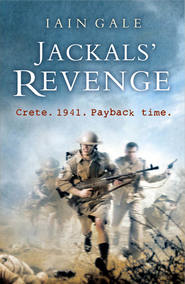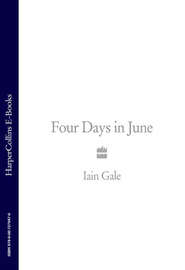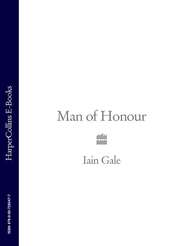По всем вопросам обращайтесь на: info@litportal.ru
(©) 2003-2024.
✖
Alamein: The turning point of World War Two
Настройки чтения
Размер шрифта
Высота строк
Поля
De Guingand laughed: ‘No, sir. I’m afraid you’re right. But it’s really not bad don’t you think?’
‘Where were you, the English Speaking Union?’
‘Yes, sir, it’s always a safe bet.’
‘How was it, the town? As confident as Leese’s men?’
‘More so, sir. It’s a different place from two months ago. They really seem to believe that the threat has gone.’
‘It has, Freddie. All we’ve got to do now is prove them right, gentlemen, isn’t it?’
The others smiled and Montgomery stood. They followed suit as he placed his hat on his head.
‘Now I think I’ll turn in. You, Oliver?’
‘I rather thought I’d watch the barrage, sir.’
‘As you will then. But what you think you’ll see I don’t know and whatever good do you suppose you’ll do?’
‘None, sir, of course.’
‘Quite. None whatsoever. You know that there is absolutely nothing you can possibly do now which will influence the battle. Your job, Oliver, is to get to bed early so you’re fresh in the morning. You must be on top form. This battle is sure to be full of shocks and you will have to take them.’
Leese nodded: ‘Yes, sir. Perhaps I should reconsider.’
‘I think you would be wise to do so. And now I really must get to bed so, gentlemen, if you’ll excuse me.’
He turned and walked up the few steps to the caravan. At the top he looked back. ‘Remember, Freddie. Any developments, be sure to wake me instantly.’
Montgomery twisted the door handle and entered the small wood-clad room. It was surprisingly cool. He closed the door behind him, removed his hat and ran his hands through his thinning hair. He sat down and stared at the floor. It was good. Leese’s report had backed up all that Freddie had told him. Everything was in place, the men were spoiling for a fight. It was all running to plan. But, he wondered, what will the situation be when I have taken 10,000 or 20,000 casualties and have lost a hundred or two hundred tanks?
He dismissed the thought. There was no going back now. Everything was ready. They must attack and force the issue. ‘D’ Day and ‘H’ Hour were set. Within half an hour the terrible barrage would begin, heralding perhaps the most important battle of the war to date. And he was its master. If he won he would be lauded and rewarded. But should he fail both the politicians and the people would vilify him. This then was to be the test of all the years. This was to be his chance.
He opened his diary and took up the pen that lay permanently beside it. ‘The enemy knows that we intend to attack and has been strengthening his defences. On our side we have the initiative and a great superiority in men, tanks and artillery and other materiel. We also have an army in which the morale is right up on the top line, and every officer and man knows the issues at stake, knows what is wanted, and knows how the battle will be fought and won.’
Every man might know, he thought, but only he had the ultimate responsibility. He might delegate and inform but ultimately the decisions were his alone.
He continued to write in the diary and as he did so wondered how posterity would evaluate his words. There would be bloodshed. Much of it. There was no way of avoiding that. And in the end a battle won here would save many more lives and might help to finish the war.
He wrote: ‘The battle will be expensive as it will really become a killing match.’ And as soon as he saw the words, he thought of their true meaning. How many men would they lose? 10,000 men, 20,000? He wrote again: ‘I have estimated 10,000 casualties in this week’s fighting…’
All that they needed now, he thought, was good weather. That and perhaps just a modicum of good luck.
SIX
7.00 p.m. Near El Alamein railway siding Josh Miller
He opened the dusty, dog-eared book and read the passage again, savouring the beauty of the lines. Xenophon was such a beautiful writer, he thought, interspersing his information with passages of real poetry. In the two years that he had been studying the classical historians at Harvard, Josh Miller had learnt to distinguish between their styles until he was able to spot them blind. Xenophon’s account of the Battle of Cunaxa between Cyrus’s Greek mercenaries and his brother’s Persians had always held him spellbound and here, in this endless desert which he supposed might with a small stretch of the imagination resemble the battlefield in Babylon it seemed even more real. He read on: ‘They all wore helmets, except for Cyrus who went into battle bare-headed. It was now midday and the enemy had yet to come into sight. But in the early afternoon dust appeared like a white cloud and after some time a sort of blackness extending a long way over the plain…far from shouting they came on as silently as they could, calmly, in a slow, steady march.’
Imagine that, he thought. Coming on into battle in a slow, steady march. Having to keep your body from breaking into a run, or running away, as the arrows and the spears began to rain down upon you. It occurred to him that he was for the first time in his life sitting in what would soon he presumed become another battlefield, surrounded by so many thousands of modern-day warriors. The thought sent a shiver down his spine. He steadied himself, placing a strong, muscular hand palm-down on the rocky ground on which he was sitting.
They had parked the Dodge ambulance at a crossroads of the coastal road that ran into the west and the southern track that had been christened Springbok Road in honour of the South Africans who now held most of its length from their Australian comrades near the sea down here into the desert.
Miller gazed out towards the west, towards the enemy and thought about the men who lay out there in their trenches and foxholes. Men from Germany and men from Italy. Men who knew this desert better than he by far, who had been here for years when this war was in its infancy. He was glad to be here, to be part of this great adventure. He knew that if he had not come he would forever have regretted it. Not for missing the chance to fight. As the son of a Quaker and a pacifist in his own mind, he would not have joined the regular army and would have protested if conscripted. Killing was anathema to him. But helping his fellow man, whatever his nationality, now that was something else. The American Field Service, an independent ambulance unit with a distinguished record in the last war had seemed perfect.
Perhaps, he thought, that was why he had felt the need to learn so much about war. He still believed that there might be another way. While his fellow students ploughed on deep into Plato and Socrates, Miller preferred to stay with Thucydides, Xenophon and Caesar. Now later conflicts interested him. Napoleon in particular fascinated him and in Cairo, after they had finally got there from the depot at El Tahag, while all the talk among his friends had been of pharaohs and pyramids, Miller’s mind had been on the image of a small Corsican general standing at the base of the Sphinx less than two hundred years ago. A man bent on world domination whose wars had lasted twenty-five years. He wondered how long this present one would last, fuelled as it was by the megalomania of another European emperor.
He was such a long way from home. Halfway across the world from college, and from the family home in Long Island. And in real terms he might as well have been on the moon.
Aged nineteen and filled with curiosity to see more of the world, he had volunteered without hesitation for the ambulance service. Someone had given him a copy of Life magazine and pointed to photographs of AFS volunteers helping the British in North Africa. Ambulances alone in vast expanses of sand; men running with stretchers. He had thought how romantic it all seemed. After he had signed up he learnt how at Tobruk AFS men had died with the British and their allies. Others had been made prisoner. He looked now at the small group who for the last two months had inhabited the ambulance that had made the journey with them five thousand miles across the Atlantic. Thought how they looked for all the world like straight British soldiers with their funny schoolboy shorts and their socks and their boots. They wore the same kit, had the same webbing, even had the same haircuts. It was only when they spoke, as now that you could tell they were Americans.
‘Oh Jeeze, Lieutenant. Not again. How come you always get to win?’
‘Privilege of rank, Turk. Nothing more. Goes with the territory.’
Charlie Turk, a muscle-bound quarterback with a navy-cut hairstyle and wearing a T-shirt with his British army-issue shorts, sat on a bunk in the back of the ambulance and paid the lieutenant his winnings. Then he picked up the pack and shuffled before dealing out two new hands on the rough red serge of the British army-issue hospital blanket.
‘Double or quits, Lieutenant. What d’you say?’
‘It’s your funeral, Turk.’
Lieutenant Evan Thomas grinned. This would be the sixth game he had played against Turk. He looked at the wodge of dollar bills at his side and tried to guess how much he had won. Four hundred? He really hated to fleece poor Turk, but if the guy insisted.
They fanned out their hands and took a look at them. Neither man smiled.
At length Turk spoke: ‘Card.’
The lieutenant handed him a card. He looked at it and said nothing.
The lieutenant took a card. Turk smiled: ‘OK three kings. What you got?’
‘Full house. I win.’
‘Beats me. You win again. I swear, Loot, you’ve got the luck of the devil himself.’
‘Not the devil, Turk. I sure don’t get my luck from him. If anyone’s on my side, it’s got to be the big guy. Don’t you think?’
Miller did not play cards, had not been brought up that way. His family were Quakers. For his part he had not yet decided, but he was pretty certain that there was some deity above them. He only hoped that whatever or whoever it was would be looking out for him in the coming battle. Because they were sure there was going to be a battle. A big one. That’s why they had been rushed here from Alexandria so fast. The lieutenant began to count his money. Miller guessed there was a time and place for everything and he had seen more things in this war than he had ever thought he would. And surely, even if God was against gambling, if He could countenance such inhumanity then He would bend the rules a little when it came to a card game. Although it did seem a little unfair that the lieutenant kept winning all the time.
He liked Thomas, who wore his officer’s rank lightly. The service was nominally subject to British army law but they had worked it out with the Brits that their own officers could dish out whatever punishments were needed.
Turk was a character too. A football player who had won a sports scholarship to Harvard and come out here to see some action before he was called up to the US army. He figured that it would give him some good battlefield experience and Miller reckoned he would probably be right.
As for himself, he had not really known what to expect. He had joined and volunteered in the fervour that came of adrenalin and then halfway across the Atlantic on the Aquitania had almost regretted it when a member of the ship’s crew had attempted suicide and the game had become a reality. But by then it had been too late.
One thing he did know. He had not yet seen a dead man, had not even seen a single casualty still on the battlefield. Sure, he had seen enough wounded in the hospitals in Cairo and Alexandria but did they really count? He reckoned not. They were all dressed and bundled up. Even the amputees seemed sanitized. No, Miller had not seen the full horror of war and he was not sure just how he was going to react to it.
Turk’s voice cut through his thoughts: ‘See this. It’s crap, McGinty. Pure crap. The lieutenant wins every time.’





